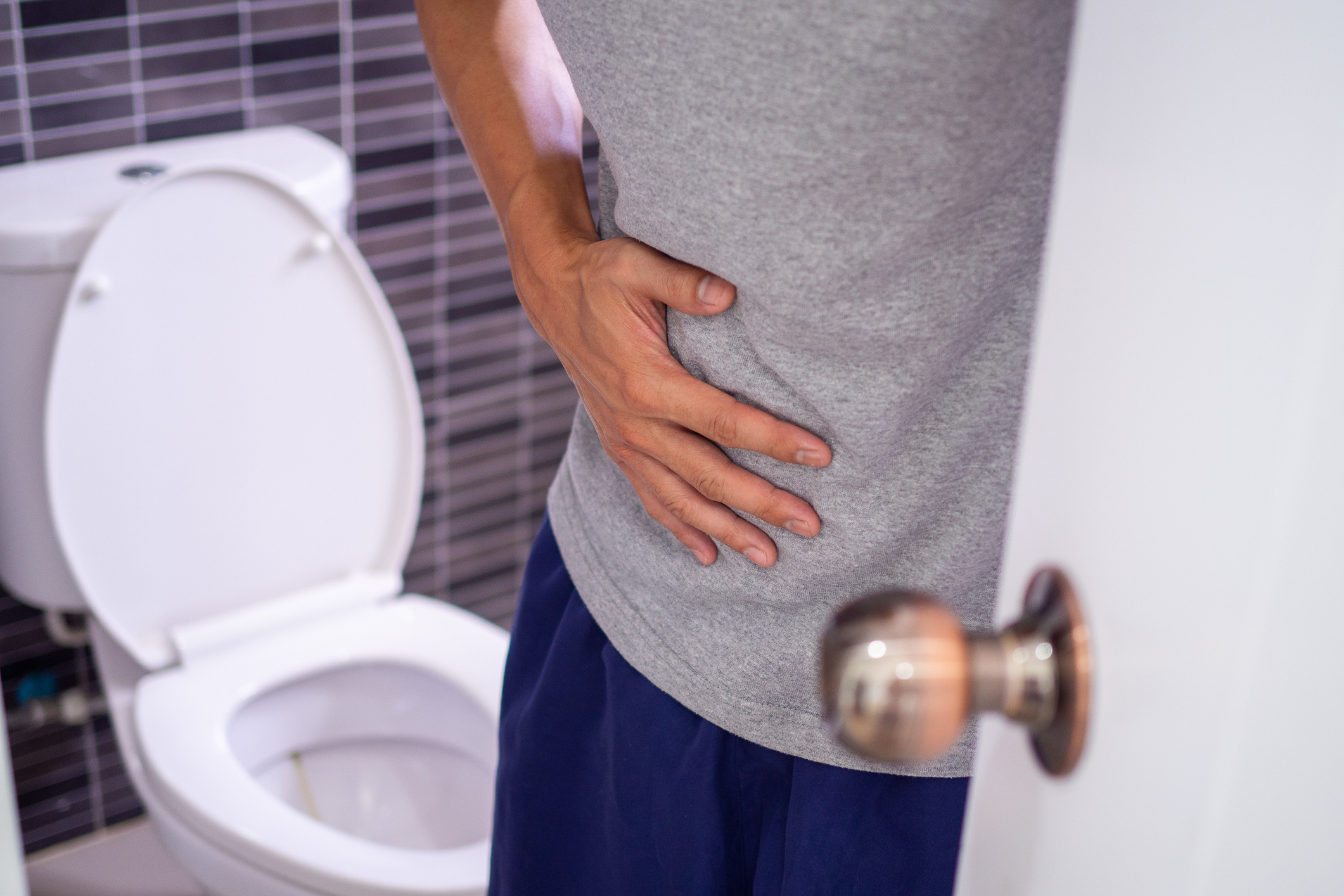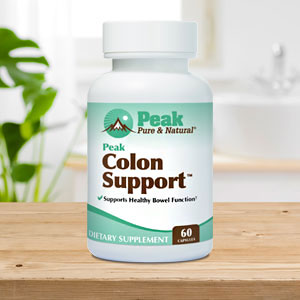Get Easy Health Digest™ in your inbox and don’t miss a thing when you subscribe today. Plus, get the free bonus report, Mother Nature’s Tips, Tricks and Remedies for Cholesterol, Blood Pressure & Blood Sugar as my way of saying welcome to the community!
Is it IBS or IBD?

For the past few years, my mother has had terrible gastrointestinal (GI) symptoms like pain, diarrhea and bloating that have made it tough for her to go about her day-to-day activities.
Seniors can commonly experience changes that affect the gut and digestion, including leaky gut, but after extensive testing, she was diagnosed with irritable bowel syndrome (IBS).
In addition to the advice she got from her doctor, she did a lot of research online to figure out how best to manage her symptoms. And it was there that she got confused. She kept seeing all these references to inflammatory bowel disease (IBD), which appeared to have similar symptoms to IBS.
It brought up the following questions for her….
What’s the difference between IBS and IBD?
Though both IBS and IBD have similar symptoms, they are very different illnesses.
IBS is a chronic GI condition causing abdominal pain and bloating and changes in bowel habits. It can be defined as diarrhea-predominant (IBS-D) or constipation-predominant (IBS-C) or a mix of the two. IBS affects an estimated 10 to 15 percent of adults in the U.S., although only 5 to 7 percent have been diagnosed with the syndrome.
IBD is a collection of diseases causing chronic inflammation of the GI tract. IBD isn’t as common as IBS; about 3.1 million U.S. adults have been diagnosed with an IBD. The two most common IBDs are ulcerative colitis and Crohn’s disease.
Both IBS and IBD can have the following symptoms in common:
- Diarrhea
- Pain
- Unintended weight loss
- Fatigue
However, IBD can have some symptoms not normally seen in IBS:
- Cramping
- Rectal bleeding
- Reduced appetite
- Anemia
- Fever
And IBS can have some symptoms not seen in IBD:
- Gas
- Constipation
- Bloating
- Nausea
- Mucus in the stool
Does IBS carry the same risks as IBD?
IBD is a much more dangerous illness than IBS. It can:
- Cause destructive inflammation and permanent damage to the intestine.
- Raise the risk of colon cancer.
By contrast, IBS:
- Does not cause inflammation of the intestine.
- Rarely requires hospitalization or surgery.
- Does not raise the risk of cancer.
Do IBS and IBD have the same cause?
So far, the answer to this question isn’t clear.
One reason IBS is notoriously difficult to diagnose is because its cause is unknown, though some researchers believe a disturbance between the brain and the gut is to blame. Doctors tend to diagnose IBS through a process of elimination, testing for IBD or celiac disease and ruling those out first.
Other potential causes of IBS include GI infection, diet, environmental or psychological factors such as stress and frequent use of antibiotics.
As for IBD, it can be diagnosed with a colonoscopy exam and biopsy of any inflamed areas of the intestine. if you have a family member who’s been diagnosed with IBD, your risk is higher.
Researchers also believe certain environmental triggers may be responsible for IBD, such as high-fat diets, antibiotics and nonsteroidal anti-inflammatory (NSAID) use, as well as smoking in people with Crohn’s. Stress can worsen IBD, and an overactive immune system may also play a role in development of the condition.
The good news here is that because these two diseases are not connected, IBS cannot progress into IBD.
Are IBS and IBD treated the same way?
Interestingly, some of the recommendations for relieving symptoms of IBS and IBD are the same. For example, eliminating dairy can help in both cases, as people with IBS or IBD are often lactose-intolerant. Caffeine can be a trigger for both IBS and IBD as well.
Vitamin D levels may play a role in both IBD and IBS sufferers. Low vitamin D can make IBD symptoms worse and vitamin D deficiency is highly prevalent in patients with IBS and some research suggests supplementation could be therapeutic.
However, IBS and IBD are treated differently. For IBD, there are medications to treat the disease. However, different people respond to medication differently, so treatment tends to be highly individualized. The goal for IBD treatment is to send the disease into remission, which decreases the chances for complications.
In addition to dairy and caffeine, people with IBD should consider eliminating fructose. At least one study in mice shows large amounts of fructose can inflame the colon.
For IBS, the goal is to manage symptoms like diarrhea and bloating. Some medications exist to treat both IBS-D and IBS-C, but as is the case with IBD, individuals can respond very differently to the treatments.
Many doctors recommend dietary modification to help manage IBS. My mother’s doctor recommended she try a low FODMAP diet to relieve her gas and diarrhea.
FODMAP stands for fermentable, oligosaccharides, disaccharides, monosaccharides and polyols. Diets high in these types of carbohydrates can cause a lot of gas and bring a lot of fluid into the intestine, which causes a lot of diarrhea. The one drawback to low FODMAP is that it’s a very restrictive.
My mom tried it and found some relief. But what helped her the most was adopting a gluten-free diet. Some IBS patients are sensitive to gluten, so eliminating it from their diet can relieve diarrhea, bloating, pain, flatulence and sometimes even constipation. This is also a restrictive diet, made more difficult since gluten hides in so many products. Whole foods are typically a safe bet, but processed foods can be like maneuvering land mines.
Another potential treatment for IBS involves treating the stress underlying the condition with cognitive behavioral therapy (CBT) or hypnotherapy. Studies show both CBT and hypnotherapy can help relieve IBS symptoms like abdominal pain and bloating and improve bowel function.
Editor’s note: Did you know that when you take your body from acid to alkaline you can boost your energy, lose weight, soothe digestion, avoid illness and achieve wellness? Click here to discover The Alkaline Secret to Ultimate Vitality and revive your life today!
Sources:
What doctors wish patients knew about irritable bowel syndrome — AMA
What doctors wish patients knew about inflammatory bowel disease — AMA
IBS vs IBD — Crohn’s & Colitis Foundation
IBS vs IBD — Beth Israel Deaconess Medical Center















